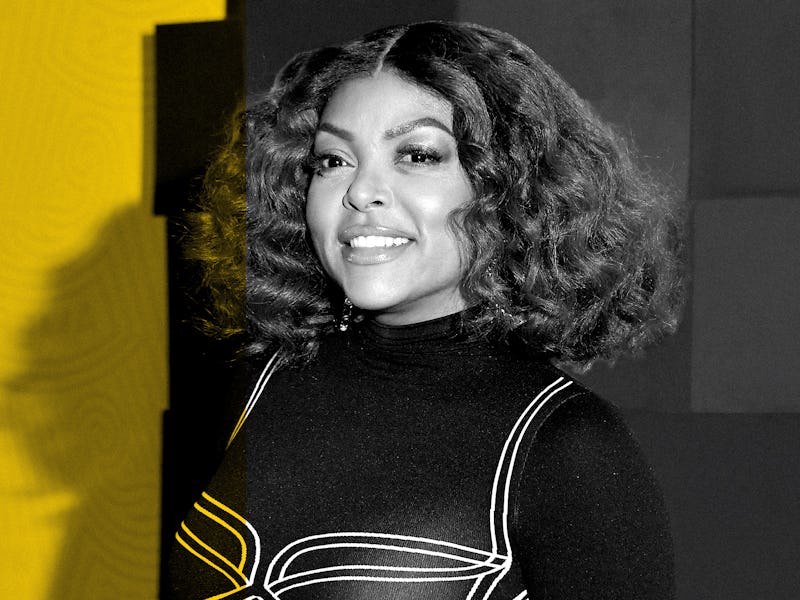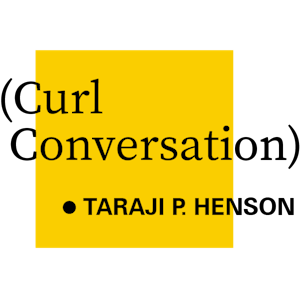(Curl Conversation)
Taraji P. Henson's Hair Journey Is Decades In The Making
From almost-hairstylist to actor and entrepreneur.

Michael Loccisano/Getty Images

Usually, when an an Oscar-nominated actor reflects on their journey to stardom, it's marked by anecdotes dating back to birth of a burning desire to be a staple on the big screen. For Taraji P. Henson, however, her dreams were to occupy hair salons, serving a clientele of women seeking out hair health and transforming scalps one-by-one. She's still doing that, kind of, and it's through her beloved hair care brand, TPH By Taraji.
"For Black people, our hair is incredibly sensitive," the actor tells TZR. "And I don't think people realize that we have to wear protective styles and put our hair away periodically because it's very, very temperamental and delicate."
That's why, when ideating around the newest products for her eponymous brand, she continued to have Black women, who like to switch it up, at the front of mind. Below, Henson discusses why she doesn't play about her hair and why you shouldn't either.
What led to your decision to go natural?
I was very tender-headed as a child and had a lot of hair. My texture was different from my mother's so she didn't know how to work with it. Because of that she started relaxing my hair at the young age of six, and I wore relaxed hair all the way up until I moved to Hollywood. And then, on the set of Baby Boy, I was talked out of it because I was told I didn't need a relaxer. So I went natural, but Hollywood hadn't embraced the Black women in our natural hair yet. I had to weave it and put European hair in my hair. After years of doing that, my edges didn't match my hair — I got sick of it and I cut it all off.
You were almost a hairstylist instead of an actor. What changed your mind?
I spent a lot of my time in the hair salon in my native D.C. because, you know, they're usually overbooked. So I was usually in there for eight hours at a time. The girl that used to do my hair, her name was Pat, and it got to the point of spending so much time together that we would close out the shop on Friday and go to the club together. So I became very particular about my hair from a very young age. I loved hair. I almost became a cosmetologist, but I missed it by a year. Obviously, that was a sign, because then I got into this acting thing.
Your experience speaks to the personal relationship Black women have with their hairstylists. Did you find that bond when you first moved to Los Angeles?
When I first got here, no one knew me, so I had to take whoever they gave me. It took awhile for me to get some notoriety and find my team. The more respect my name got, the more respect that was given to me, but I have horror stories. It actually happened recently. This magazine tried to strong arm me into using their hair person. I said, 'So do y'all have the wig?' They thought just because this guy was Black, he could do my hair and it was as simple as him just putting a wig on my head. But he didn't even know about a wig. Get this, he had the editor go and buy this wig. And then, the hair was wrong. He haphazardly glued it onto my head and it looked crazy. So I knew to keep my hairstylist close — I said, 'Tym, it's your turn.'
That's why sometimes you gotta play the game. You just have to sit back and give them the opportunity to prove your point. I'm not a difficult person, and I understand that, in some instances, brands will want a cohesive look. I get that. But, when it comes to my face and my hair, you don't get to play with this. I have hair integrity.
You just mentioned keeping your hairstylist Tym Wallace close. Is that a personal relationship just as much as it is a working relationship?
Well, I'm really close with hair and makeup period. Maybe it's because I spent all of those hours in the salon back in the day. Ask any hair or makeup person that I've ever worked with on any set where I hang out in between shooting, and it's always right next to them. I swear, I know I'm an actor, but I feel like I belong over there with them. I just speak their language.
So the thing about a hairstylist and their client, it's about energy. It's about getting to know each other. [Tym] knows what I like and what I don't like — and I trust him. He's been around me enough. There has to be trust, limitless trust, and that's what I have with him, I really do. Whenever anybody works in my camp, we become family because that's just how I am. We spend so much time together.
So I assume your extensive knowledge of hair is what led to TPH By Taraji?
I just saw a void in hair care. We have all the curl creams and and stylers but where is the emphasis on scalp health? You've got to realize that if your scalp is not properly maintained, your hair won't grow. That's like trying to get a garden to grow out of dry, cracked soil. You have to maintain the soil if you want to reap a harvest. The same thing goes with your hair. I can't promise you that you will grow your hair down to your ass, but I can promise you that healthy scalp care will lead to a healthy head of hair.
And another thing, you spend all this money on face creams and facials, but if you don't clean your scalp, whatever's on your scalp will end up on your face. No one's telling us that. We use so much crap in our hair trying to get that perfect curl, but what happens to that product? It eventually ends up on your face. So I was in the kitchen lab creating formulas because it was trial and error for me. I've always been very good with my scalp and my hair so now I'm transitioning to figuring out how I can teach others.
And like you said, no matter what style you're wearing your hair in, scalp care is important. How does that reflect in the versatility of products?
Well I'm diverse and versatile in the way I wear my hair. I've already cut it, worn wigs, now I'm back to straightening it. So if I want for people to really understand what this hair line is and why I created it, they have to see me actually doing it. That's why I coined the term 'hair chameleon,' because that's what I've been all my life. I remember when I worked at the Pentagon [as a secretary] the white people didn't understand. They would say 'Oh your hair is short today,' and 'Oh, you've got braids today!' I was switching it up baby. And I'm still switching up, that will never stop.
We only include products that have been independently selected by The Zoe Report’s editorial team. However, we may receive a portion of sales if you purchase a product through a link in this article.